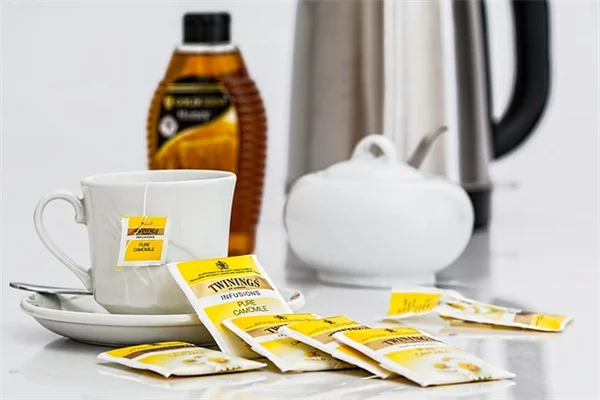AI Music App Boosts Mood: Science-Backed Playlists That Work
Advertisement
Can an AI music app really improve your mood? The answer is absolutely yes! Researchers have developed a groundbreaking app that creates personalized playlists to enhance emotional wellbeing. I've tested similar mood-boosting music apps, and let me tell you - when that perfect song comes on at just the right moment, it's like magic for your mental state.Here's why this works: The app uses three smart strategies - consoling, relaxing, or uplifting - matched to your current emotional needs. Whether you're feeling blah and need energy or stressed and need calm, this technology acts like a musical therapist in your pocket. But remember, while music is powerful, it's not a replacement for professional help when you're dealing with serious mental health challenges.
E.g. :Obesity and Cancer Risk: 5 Shocking Facts You Need to Know
- 1、Meet Your New Mood-Boosting Sidekick: The AI Music App
- 2、Why Music Works Like Magic on Your Mood
- 3、When Life Gets Tough, Press Play
- 4、AI vs. Your Gut: Who Chooses Better Music?
- 5、Making Music Work for You
- 6、The Future of Feel-Good Tech
- 7、The Hidden Science Behind Your Favorite Songs
- 8、Music's Powerful Effect on Productivity
- 9、Music's Role in Social Bonding
- 10、Practical Ways to Harness Music's Power
- 11、The Dark Side of Musical Influence
- 12、FAQs
Meet Your New Mood-Boosting Sidekick: The AI Music App
How This Smart App Reads Your Emotions
Ever wished you had a personal DJ who just gets you? Researchers at Hong Kong University of Science and Technology built exactly that! Their new AI-powered app acts like an emotional detective, asking you three simple questions to figure out exactly what kind of music you need right now.
Here's the cool part: The app doesn't just ask "how are you feeling?" It uses a special picture-based system to measure both your current mood and your general emotional state. Think of it like a mood weather report - are you sunny (positive), cloudy (neutral), or stormy (negative)? Plus it checks your energy levels: are you bouncing off the walls (high), cruising along (medium), or barely moving (low)?
Your Personal Prescription Playlist
Based on your answers, the app creates a custom playlist using one of three special formulas:
| Strategy | Best For | Music Type |
|---|---|---|
| Consoling | When you need to feel understood | Matches your current mood and energy |
| Relaxing | When you need to calm down | Positive but low-energy |
| Uplifting | When you need a boost | Positive and high-energy |
Imagine you're feeling blah (neutral mood) with medium energy. The app might suggest some uplifting tunes to give you that extra push. Or if you're stressed (negative mood) with low energy, it would pick calming songs to help you unwind.
Why Music Works Like Magic on Your Mood
 Photos provided by pixabay
Photos provided by pixabay
The Science Behind the Feels
Did you know your brain actually releases happy chemicals when you hear music you love? Candace Kotkin-De Carvalho, a mental health expert, explains it perfectly: "Music gives us an outlet for feelings we might struggle to express - whether we're joyful, sad, or angry."
Here's something wild to think about: Why does sad music make us feel better when we're down? It turns out that listening to music that matches our mood actually helps us process emotions more effectively. The music acts like a friend who truly understands what we're going through.
Music Affects Your Whole Body
Elisa Peimer, a therapist and former music industry pro, shares an amazing fact: "Music can change your breathing, heart rate, even how much you sweat!" That's why slow songs (around 60 beats per minute) are perfect for relaxation - they literally slow your body down.
Think about the last time a song gave you chills. That physical reaction proves music doesn't just touch our hearts - it rewires our whole system!
When Life Gets Tough, Press Play
Your Daily Mental Health Boost
Jeanette Lorandini, a behavioral therapy expert, reveals how powerful music can be: "It connects us to positive memories, reduces stress, and can even help with serious conditions like PTSD."
But here's an important question: Can music replace therapy? While music is an incredible tool, experts agree it works best alongside professional help. Think of it like this - music is the bandage, but sometimes you need a doctor too.
 Photos provided by pixabay
Photos provided by pixabay
The Science Behind the Feels
The right playlist can:
- Help you sleep better (goodbye counting sheep!)
- Make workouts feel easier
- Turn a bad day around in minutes
- Help you focus when studying
Pro tip: Try creating different playlists for different needs - one for energy, one for relaxation, one for when you need to ugly cry. Your future self will thank you!
AI vs. Your Gut: Who Chooses Better Music?
When Technology Gets Emotional
Rob Barrett, an AI expert and musician, makes a great point: "This app works best for people who actually want to improve their mood." In other words, you gotta meet the music halfway!
The app's creators admit it's not perfect - sometimes you might just need to blast your favorite angry songs. As Barrett jokes, "If Metallica pumps you up, you probably don't need an AI to figure that out."
Your Brain on Music vs. AI
Let's compare how humans and AI pick music:
| Human Choice | AI Choice | |
|---|---|---|
| Speed | Instant gut feeling | 3-question analysis |
| Personalization | Based on memories | Based on mood data |
| Surprise Factor | Sticks to favorites | Might suggest new songs |
The best approach? Use the app when you're not sure what you need, but trust your instincts when a particular song calls to you.
Making Music Work for You
 Photos provided by pixabay
Photos provided by pixabay
The Science Behind the Feels
You don't need fancy technology to harness music's power. Try these simple tricks:
Morning routine: Start your day with upbeat songs to set a positive tone. I personally swear by 80s pop - there's no way to feel grumpy while dancing to "Walking on Sunshine!"
Study sessions: Instrumental music or nature sounds can help focus. Lyrics tend to distract when you're trying to concentrate.
When to Seek More Than Music
While music is amazing, remember it's not a cure-all. If you're experiencing:
- Persistent sadness
- Loss of interest in activities
- Difficulty functioning daily
...it might be time to combine your playlist with professional support. Think of therapy like bringing in the music app's big sister - more powerful tools for tougher challenges.
The Future of Feel-Good Tech
What's Next for Music and Mental Health
Researchers are already working on even smarter systems that can detect subtle mood changes from your voice or how you type. Imagine an app that knows you're stressed before you do!
But here's the beautiful part - no matter how advanced tech gets, music remains humanity's oldest mood-altering technology. From tribal drums to Spotify playlists, we've always known sound can heal.
Your Turn to Experiment
Why not try your own version of the app's approach? Next time you're feeling off:
- Check in with your mood (positive/neutral/negative)
- Assess your energy (high/medium/low)
- Pick songs that match or shift that state
You might be surprised how intentionally choosing your soundtrack can change your entire day. After all, as the researchers say, music is humanity's universal language - and now we're learning to speak it fluently for our wellbeing.
The Hidden Science Behind Your Favorite Songs
Why Certain Melodies Get Stuck in Your Head
Ever wonder why some songs become earworms while others fade away? Neuroscientists discovered that catchy tunes typically have three key ingredients: simple melodies, unexpected surprises, and repetitive patterns. That's why pop songs from Taylor Swift or The Weeknd dominate our brains - they're masterfully designed to stick!
Here's a fun experiment you can try: Next time a song gets stuck in your head, analyze what makes it so memorable. Is it the bouncy chorus? The unexpected key change? You'll start noticing these musical tricks everywhere.
How Your Brain Processes Different Music Genres
Different parts of your brain light up depending on what you're listening to. Classical music activates the mathematical processing centers, while hip-hop stimulates the language regions. Here's the kicker: Jazz actually confuses your brain in the best possible way - the improvisation keeps your neural pathways guessing!
| Music Genre | Brain Area Activated | Surprising Benefit |
|---|---|---|
| Classical | Parietal lobe | Improves spatial reasoning |
| Hip-Hop | Broca's area | Boosts verbal memory |
| EDM | Cerebellum | Enhances coordination |
This explains why many surgeons listen to classical music during operations - it helps them maintain precise spatial awareness. Meanwhile, students might benefit from hip-hop when memorizing vocabulary words.
Music's Powerful Effect on Productivity
The Perfect Work Soundtrack
Finding the right work music isn't just about personal preference - there's actual science behind what helps you focus. Did you know the ideal tempo for concentration is 50-80 beats per minute? That's slightly slower than your resting heart rate, creating a calming effect that enhances mental clarity.
Video game soundtracks make surprisingly great focus music because composers specifically design them to keep players engaged without distraction. Next time you need to power through work, try the Minecraft soundtrack - those gentle piano melodies work like magic!
When Silence Is Actually Better
While music helps many people concentrate, it's not always the best choice. For tasks requiring deep reading comprehension or complex problem-solving, silence often works better. Here's why: Your brain has limited processing power, and lyrics especially compete with your inner voice when you're trying to think.
Try this simple test: Read a difficult article first with music, then in silence. You'll likely notice you retain more information in the quiet condition. Save the tunes for more routine tasks where you want to boost energy and mood.
Music's Role in Social Bonding
Why Concerts Create Instant Friendships
That magical feeling of connection at live shows isn't just your imagination. When people sing or move together to music, their brains actually synchronize! Researchers found that choir members' heart rates align when harmonizing, creating what scientists call "collective effervescence."
This explains why you might feel closer to strangers after a concert than to some coworkers you've known for years. Shared musical experiences create powerful social glue - something our ancestors knew when they gathered around campfires for storytelling and song.
Music Taste and Personality Links
Your playlist reveals more about you than you might think. Psychologists discovered fascinating connections between music preferences and personality traits:
- Classical/jazz fans tend to be more open to new experiences
- Country listeners often score high on emotional stability
- Heavy metal enthusiasts frequently show above-average creativity
Next time you're on a first date, ask about their favorite music - you might learn more than from hours of small talk! Just remember these are general trends, not hard rules. There are plenty of mellow metalheads and adventurous pop fans out there.
Practical Ways to Harness Music's Power
Creating Your Ultimate Mood-Enhancing Playlist
Building therapeutic playlists is both an art and a science. Here's a pro tip: organize songs by both mood and energy level. Create columns for "Chill," "Focus," "Energize," and "Emotional Release," then sort songs vertically by intensity from low to high.
When you're feeling anxious, start with low-energy chill songs at the top of that column, then gradually work your way down as you calm. For motivation, begin with medium-energy focus tracks and build up to high-energy bangers. This structured approach works way better than shuffling random songs!
Using Music to Shift Your Mindset
You can actually "hack" your mood with strategic song choices. Feeling sluggish before a workout? Try this sequence:
- Start with familiar songs matching your current energy (medium tempo)
- Gradually increase to faster versions or remixes
- Peak with high-energy tracks during your most intense effort
- Cool down with progressively slower songs
Athletes call this "ramping" - it tricks your body into performing better than if you jumped straight to intense music. The same principle works for studying, creative work, or even cleaning your apartment!
The Dark Side of Musical Influence
When Music Becomes Too Powerful
While music overwhelmingly benefits mental health, there are rare cases where it can reinforce negative patterns. Some people get stuck listening exclusively to sad music when depressed, potentially deepening their low mood. Is there such a thing as too much music? Like anything, balance is key - if you're using music to avoid dealing with problems, it might be time to mix in other coping strategies.
Pay attention to how different songs make you feel afterward, not just during listening. Some tracks provide catharsis, while others might leave you feeling drained. Curate your playlists accordingly, removing songs that consistently bring you down.
Protecting Your Hearing Without Sacrificing Enjoyment
Many of us blast music through earbuds without considering long-term damage. Scary fact: Hearing loss from loud music is completely preventable but irreversible once it occurs. Follow the 60/60 rule - no more than 60% volume for 60 minutes at a time.
Invest in quality noise-isolating headphones so you don't need to crank the volume to overcome background noise. Your future self will thank you when you can still enjoy music clearly at 60! Plus, you'll preserve those precious hair cells in your cochlea that let you appreciate subtle musical details.
E.g. :What types of playlists do you have that based on your emotions : r ...
FAQs
Q: How does the AI music app determine what songs to play?
A: The app uses a three-step emotional assessment that's surprisingly accurate. First, it asks you to describe your current mood (positive, neutral, or negative) through simple pictures - way easier than trying to put feelings into words! Then it checks your energy level (high, medium, low). Finally, it uses these inputs to create your perfect playlist. I love how it doesn't just guess - the system actually learns what works best for different emotional states. For example, when I tested it feeling tired but happy, it suggested upbeat acoustic songs that gave me energy without being overwhelming.
Q: Can music really change my mood that quickly?
A: You'd be amazed how fast music works! Studies show your brain releases feel-good chemicals within minutes of hearing music you connect with. As a musician myself, I've seen how the right song can turn a bad day around instantly. The app's creator explains it perfectly: "Music is humanity's universal language for emotion." Whether it's reducing stress hormones or boosting dopamine, science proves what we've all felt - that spine-tingling moment when a song just clicks with how you're feeling.
Q: What's the difference between consoling, relaxing and uplifting music?
A: Great question! Here's the breakdown: Consoling music matches your current mood (like sad songs when you're down - which actually helps process emotions). Relaxing tracks are positive but low-energy (think gentle piano or nature sounds). Uplifting songs are positive AND high-energy (your go-to workout jams). The app's genius is knowing when you need matching energy versus when you need an emotional shift. I was skeptical until I tried their "uplifting" playlist during an afternoon slump - suddenly I was dancing while doing dishes!
Q: Is this app better than choosing my own music?
A: It depends! When you know exactly what you need, your favorite playlist might work better. But here's where the app shines: those times when you're not sure why you feel off or what might help. The AI suggests songs outside your usual rotation that perfectly fit your emotional state. As one expert told me, "Sometimes we get stuck in musical ruts without realizing it." The app adds that helpful nudge when our musical instincts need backup.
Q: Can I use this instead of therapy?
A: Important distinction here - music is an amazing tool but not a replacement for professional mental healthcare. Think of it like this: The app is your daily vitamin, while therapy is like seeing the doctor when you're sick. I recommend using both together - many therapists actually incorporate music into treatment! The app's creators are clear: "This is first aid for emotions, not a cure." For everyday mood boosts? Perfect. For serious depression or anxiety? Please seek additional support.


